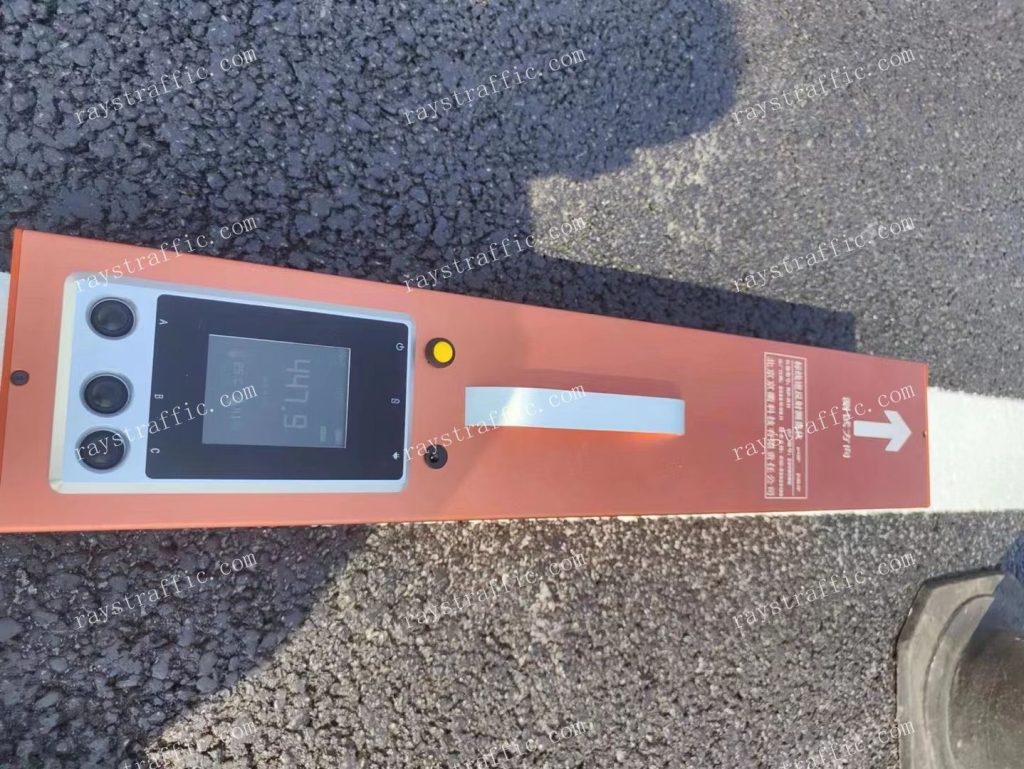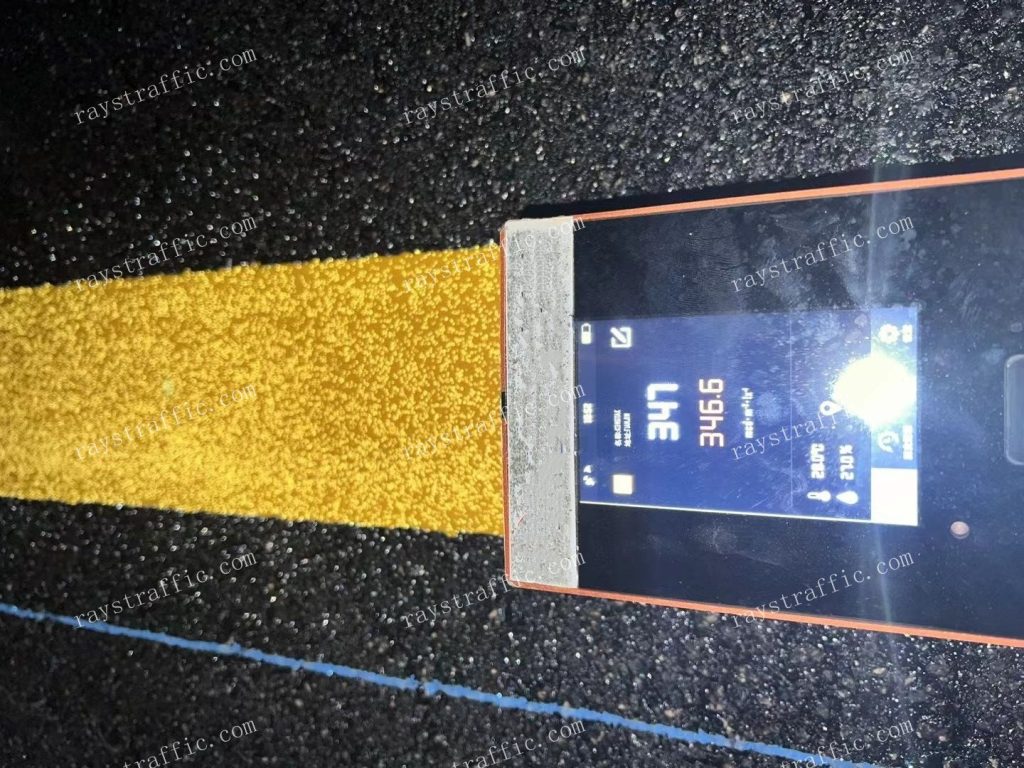Pavement marking retroreflectivity is a general term for the coefficient of retroreflected luminance (RL) in units of mcd.m-2.lx-1. The standard measuring condition is intended to simulate a visual distance of 30m for the driver of a passenger car with an eye height of 1.2 m above the road with diffuse illumination from daylight or under road lighting.
1. EN 1436 Road Marking Materials—Road Marking Performance for Road Users
EN 1436 is the European standard for measuring pavement marking performance. EN1436 specified the performance for road users of white and yellow road markings, as expressed by their reflection in daylight or road lighting. retroreflection in vehicle headlamp illumination, colour and skip resistance. Furthermore, the standard specifies test methods and conditions. These conditions include dry, wet, and rainy conditions.

2. ASTM E1710 Retroreflectivity in Dry Conditions
ASTM E1710 is the standard test method for measurement of retroreflective pavement marking
materials with CEN-prescribed geometry using a portable retroreflectometer. ASTM E1710-18 test method covers measurement of the Retroreflective properties of horizontal pavement marking materials containing retroreflecting beads, such as traffic stripes and surface symbols, using a portable retroreflectometer that can be placed on the road delineation to measure the retroreflection at a prescribed geometry.
ASTM International standard test methods for evaluating pavement marking retroreflectivity are the most commonly used test methods in the United States. The test methods describe procedures for evaluating the retroreflectivity of pavement markings in different conditions—dry, recovery after being wet, and continuous wetting.
3. ASTM E2177 Standard Condition of Wetness
ASTM E2177 is the standard test method for measuring the coefficient of retroreflected luminance (RL) of pavement markings in a standard condition of wetness. ASTM E2177 test method covers the measurement of the wet retroreflective (RL wet) properties of horizontal pavement marking materials, such as traffic stripes and road surface symbols, using a portable retroreflectometer that can be placed on or before the road marking to measure the retroreflection at the prescribed geometry. This method of measuring the wet retroreflective properties (RL) of pavement markings measures the wet retroreflectivity in a condition of wet recovery.

4. ASTM E2832 Standard Condition of Continuous Wetting
ASTM E2832 is the standard test method for measuring the coefficient of retroreflected luminance of pavement markings in a standard condition of continuous wetting (RL-2). ASTM E2832 test method covers a measurement of the wet retroreflective (RL-2) properties of horizontal pavement marking materials, such as traffic stripes and road surface symbols. A standardized method utilizing a standardized continuous wetting device and a portable retroreflectometer is described to obtain measurements of the wet retroreflective properties of horizontal pavement markings. Retroreflective performance obtained with this test in a standardized condition of continuous wetting does not necessarily relate to how markings perform in all conditions of natural rain.
5. ASTM E2302-03a
ASTM E2302-03a is the standard test method for measurement of the luminance coefficient under diffuse Illumination of pavement marking materials using a portable retroreflectometer.
6. ASTM E2366
ASTM E2366 is the standard test method for measurement of daytime chromaticity of pavement marking materials using a portable reflection colorimeter.
7.ASTM E2367
ASTM E2367 is the standard test method for measurement of nighttime chromaticity of pavement marking materials using a portable retroreflection colorimeter.
